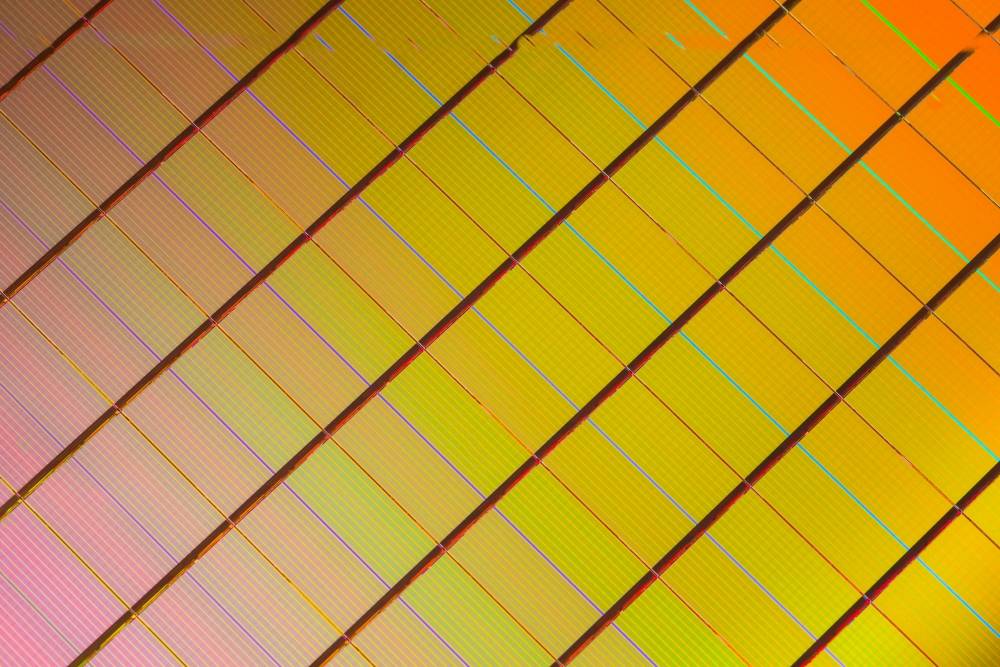ASML Says Chinese Employee Stole Data As US Sanctions Bite

ASML has claimed that a former employee in China stole data about its technology, which may have led to a breach of export controls.
The Netherlands-based maker of photolithography equipment for manufacturing semiconductors stated in its annual report, released today, that it had experienced "unauthorized misappropriation of data relating to proprietary technology" by a former employee in China.
ASML does not explicitly state what this information is, or whether it may assist the Chinese in attempting to copy the company's technology, but said that based on initial investigations, it did not believe that the misappropriation is material to its business.
However, the company said that as a result of the security incident, certain export control regulations may have been violated, and ASML has therefore reported the incident to the relevant authorities.
Also in the annual report, ASML president and CEO Peter Wennink referred to reports in the media that the US, Netherlands and Japan have agreed to further restrict the export of semiconductor manufacturing equipment to China.
Wennink stated that "the terms of this agreement have not been publicly disclosed and remain confidential for now," but added: "We understand that steps have been taken that would cover advanced lithography tools as well as other types of equipment."
He said that it would take many months for the governments involved to draw up and enact new rules, but ASML did not expect these measures to have a material effect on its expectations for 2023.
ASML reported net sales and profits both up in its earnings for Q4 of 2022, and said at the time that it expected to see continued strong growth during this year.
Wennink also criticized the latest export restriction developments, saying that they will likely have a detrimental impact on advances in semiconductor technology.
"On a geopolitical level, the bifurcation of socio-economic blocks – with the associated export and import controls – is threatening the development of the global village that contributed so much to a lot of the innovation we have seen in recent years," he said. "If countries or trade blocks withdraw into their own territories, then innovation will be less effective and more expensive."
- Japan may go easy on China over export bans on chipmaking equipment
- US ban on China chip exports rebounds, causes 2,700 job losses
- ASML forecasts growth this year, but chipmakers expect pain
- As wafer demand dries up, foundry revenues head for a cliff, we all celebrate
This is echoed by China's chip industry trade body, the China Semiconductor Industry Association (CSIA), which stated that if the reported restrictions become reality they will "cause serious harm to the semiconductor industry in China, with detriment to the global economy, as well as long-term damages to the interests of consumers worldwide."
The CSIA said that it opposes the act of interfering in global trade liberalization, distorting the balance of supply and demand, and also objected to "attempts to exclude China's semiconductor industry from the global innovation system and free competition market."
Meanwhile, Washington's existing sanctions are having an effect on the plans of Chinese chipmakers to expand their operations, according to Nikkei Asia, which detailed problems affecting Yangtze Memory Technologies Corp (YMTC) in particular.
The company has seen progress grind to a halt at a new semiconductor plant near Wuhan, originally expected to start production in late 2022, with the chipmaking equipment yet to be installed. This may be due to the departure of engineers from US chipmaking equipment companies that had been supporting YMTC's expansion plans.
Last week, the South China Morning Post reported that YMTC has sharply cut back on orders for production equipment over recent months following the imposition of export controls by the US, and the company is said to be planning to layoff 10 percent of its workforce. ®
From Chip War To Cloud War: The Next Frontier In Global Tech Competition
The global chip war, characterized by intense competition among nations and corporations for supremacy in semiconductor ... Read more
The High Stakes Of Tech Regulation: Security Risks And Market Dynamics
The influence of tech giants in the global economy continues to grow, raising crucial questions about how to balance sec... Read more
The Tyranny Of Instagram Interiors: Why It's Time To Break Free From Algorithm-Driven Aesthetics
Instagram has become a dominant force in shaping interior design trends, offering a seemingly endless stream of inspirat... Read more
The Data Crunch In AI: Strategies For Sustainability
Exploring solutions to the imminent exhaustion of internet data for AI training.As the artificial intelligence (AI) indu... Read more
Google Abandons Four-Year Effort To Remove Cookies From Chrome Browser
After four years of dedicated effort, Google has decided to abandon its plan to remove third-party cookies from its Chro... Read more
LinkedIn Embraces AI And Gamification To Drive User Engagement And Revenue
In an effort to tackle slowing revenue growth and enhance user engagement, LinkedIn is turning to artificial intelligenc... Read more

